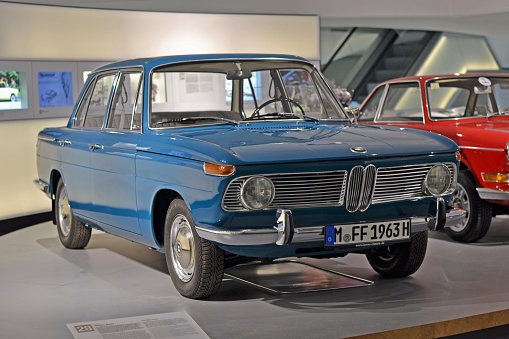
The BMW 1500, introduced in 1961, is a significant model in BMW’s history as it marked the company’s transition into the compact executive car segment. It was part of the “New Class” range of vehicles that played a crucial role in revitalizing BMW as a brand and establishing its reputation for sporty, well-engineered cars.
The BMW 1500 was designed by Wilhelm Hofmeister and brought a fresh and modern design language to the brand. Its clean and timeless styling, characterized by its iconic “Hofmeister kink” rear window treatment, set the tone for future BMW models. The 1500 featured a spacious and comfortable cabin with seating for four or five occupants, making it a practical choice for families.
Under the hood, the BMW 1500 was powered by a 1.5-liter four-cylinder engine that delivered a respectable amount of power for its time. It utilized a single carburetor and produced around 80 horsepower, providing a good balance of performance and fuel efficiency. The engine was mated to a four-speed manual transmission, although later models were available with an optional automatic transmission.
The BMW 1500’s driving dynamics were a standout feature. It featured independent suspension and disc brakes on the front wheels, which was a significant advancement for a car in its class during that era. This combination of precise handling and responsive braking made the 1500 a joy to drive, setting the foundation for BMW’s reputation as a manufacturer of sporty and engaging vehicles.
The success of the BMW 1500 led to the introduction of several variants, including the 1600, 1800, and 2000 models, each featuring larger engines and increased performance. These models further solidified BMW’s position in the compact executive car segment and laid the groundwork for future iconic models like the BMW 3 Series.
The BMW 1500’s impact on the automotive industry was significant. It signaled BMW’s shift towards a more modern and dynamic brand image, shedding its reputation as a manufacturer of small economy cars. The success of the 1500 and its New Class siblings played a crucial role in BMW’s financial recovery and set the stage for the company’s future growth and success.
